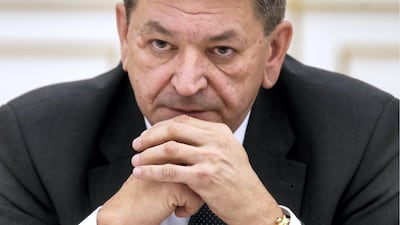Russia’s anger following its unexpected failure to secure the largely symbolic position of Interpol president has highlighted the increasingly significant role of the organisation in pursuing targets across the globe.
The centrepiece of the organisation’s work is its red notice database – an informal and largely secret list of the world’s ‘most wanted’ criminals - which is distributed among its 194 members and allows states to pursue its enemies beyond its borders.
Campaigners have long sought to reform a system they say has been open to abuse from countries seeking to pursue exiles and political opponents. Some of the world’s most repressive regimes are among the group’s membership.
The annual number of red notices issued by the organisation has increased by more than 900 per cent in the last 15 years with more than 13,000 issued in 2017.
Campaigners said the appointment of the Alexander Prokopchuk – the nominee of a country regularly accused of abusing the system – would have sent a potent message to Moscow’s enemies that nowhere was safe for them to run.
____________
Read more:
South Korean Kim Jong-yang elected as Interpol president
Interpol on the brink as Putin crony set to take over
____________
The surprise election of South Korea’s Kim Jong-yang signified a major success for a late and vigorous campaign led by the US and the UK to push back against Russia’s influence in the best-known international policing organisation.
The campaign was given impetus with a joint appearance by Bill Browder, a Kremlin critic, and former oligarch-turned-dissident Mikhail Khodorkovsky on Tuesday, who criticised Russia’s “serial misuse” of red notices.
“Browder and Khodorkovsky got on their horses and made a lot of noise,” said UK barrister Ben Keith, an extradition expert who has represented suspects targeted by red notices. “The campaign in the last 48 hours made a difference.”
The political nature of the appointment was apparent from Mr Kim’s two-year appointment to complete the term of office of his predecessor, China’s Meng Hongwei. Mr Meng was detained on corruption charges in China in September and resigned his position.
The Interpol leadership accepted Mr Meng’s resignation because he was seen as a “delegate” of China, rather than being elected on a personal capacity. His 2016 selection had sparked anger from campaigners who accused China of also misusing Interpol to pursue its targets.
They included Dolkun Isa, the German-based leader of the World Uyghur Congress who is campaigning for the rights of the repressed Muslim minorities in China. He had been labelled a “terrorist” by Beijing which had sought to bring him to justice. The appointment of a controversial Russian placeman would have raised further questions about the legitimacy of Interpol, said critics.
Mr Meng’s election was accompanied by new reforms to prevent the gaming of its systems but campaigning group Fair Trials said those measures appeared to have stalled. It said it hoped the election of Mr Kim could herald a more transparent system.
“Fair Trials is hugely relieved by this result and delighted that Kim Jong-yang was elected with such a clear mandate to see through the reforms needed to prevent political abuse of the Red Notice system,” said chief executive Jago Russell.
Russia’s opponents sought to capitalise on the Kremlin’s reversal with Mr Browder pushing for the country’s suspension from the organisation for “consistent and serial abuse” of the red notice system.
Mr Browder said he was arrested in Madrid earlier this year based on a diffusion notice, a step short of a red notice. He claimed it was the sixth time that Russia had abused the Interpol system to target him.
The presidency is largely a ceremonial role but provides some strategic direction for the day-to-operations of Interpol led secretary general Jurgen Stock, a veteran Germany police officer, lawyer and academic.
Interpol’s 95-year history and its global reach has led to public perception that it wields greater powers than it actually possesses. It does not have its own enforcement officers and promotes international cooperation between forces.
But critics have pointed out that it is an independent organisation not part of the UN umbrella, has diplomatic status in the countries where it operates and is subject to limited outside scrutiny.

